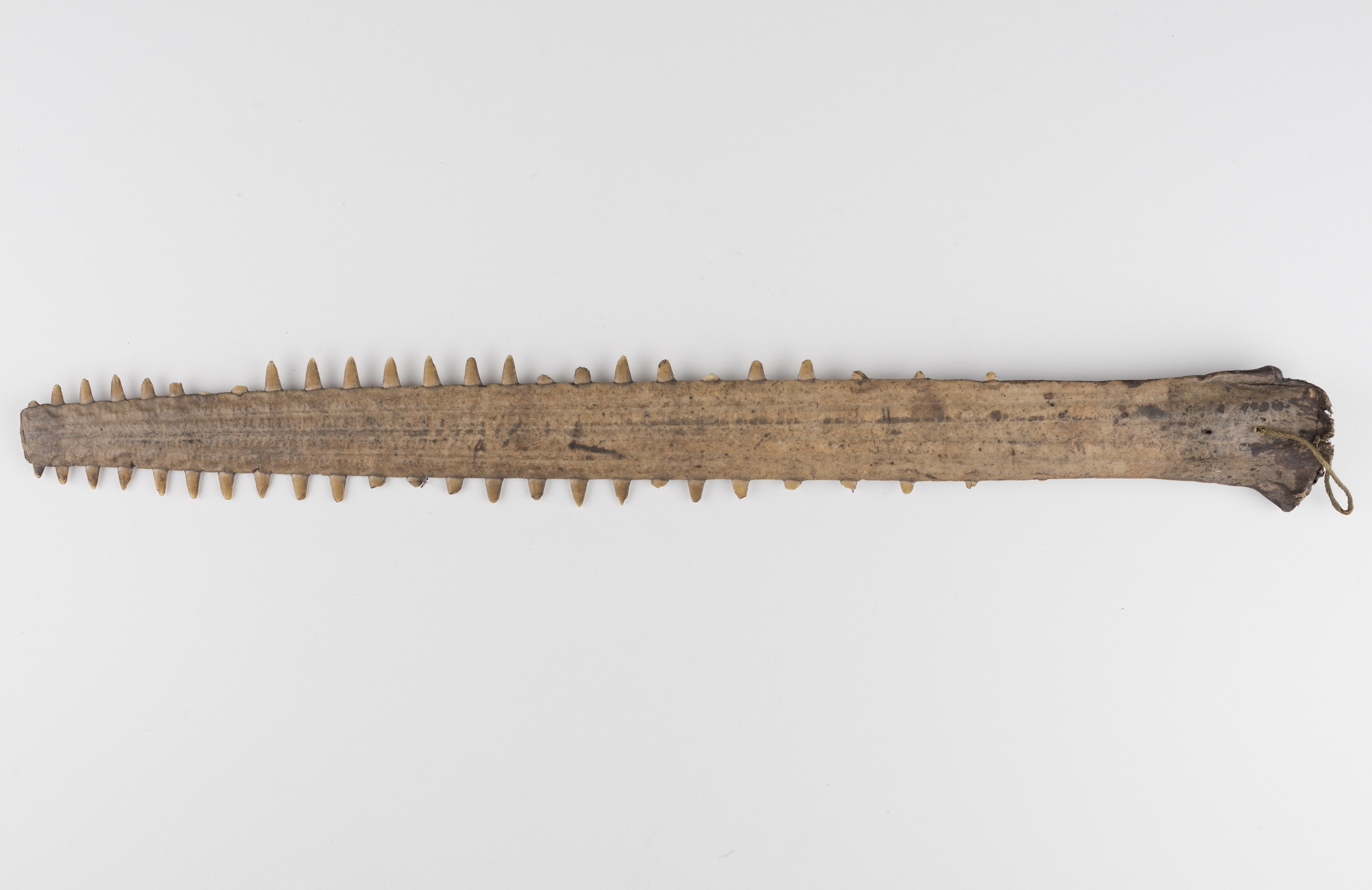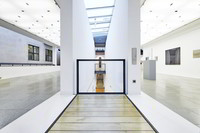Rostrum of a sawfish with 60 teeth. The saw is separated from the cranium of the animal.
The rostrum originates together with another one from the Ulm pharmacy "Kronenapotheke". Its furnishing and laboratory were a gift of the pharmacist and then museum director Gustav Leube to the Gewerbemuseum Ulm (Museum of Applied Arts Ulm) in 1901. There is no precise information on the origin of the object.
The engagement in plants, animals and minerals was part of the everyday work of European pharmacists since the Early Modern Age. Many pharmacists compiled extensive natural history collections that not only served medical and pharmaceutical research but also comparative studies in natural history and pursued the purpose of collecting and preserving. Exotic animals and plants from the collections also served in the pharmacies as typical decoration objects that decorated the ceilings and walls of the pharmacies. In this way the rostrum was exhibited in the Gewerbemuseum within the furnishing of the Kronenapotheke.
en

